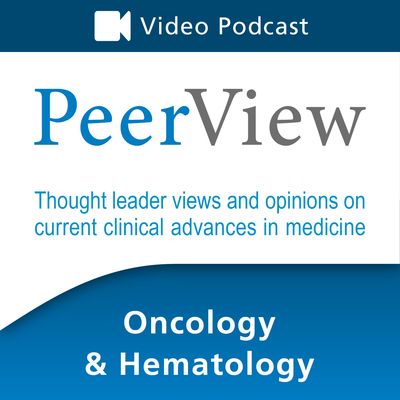PeerView (PVI) is a leading provider of high-quality, innovative continuing education (CME/CE/CPE and MOC) for clinicians and their interprofessional teams. Combining evidence-based medicine and instructional expertise, PeerView activities improve the knowledge, skills, and strategies that support clinical performance and patient outcomes. PeerView makes its educational programming and expert-led presentations and symposia available through its network of popular podcast channels to support specific specialties and conditions. Each episode includes a link to request CME/CE credit for participation. PeerView is solely responsible for the selection of topics, the preparation of editorial content, and the distribution of all materials it publishes.
http://ww2.peerview.com
Prof. Mohamad Mohty, Christine N. Duncan, MD - New Rules for VOD/SOS: Modern Risk Assessment, Diagnostic Principles, and Innovative Treatment
Go online to PeerView.com/CUN860 to view the activity, download slides and practice aids, and complete the post-test to earn credit. Are you prepared to apply the “new rules” of management to veno-occlusive disease (VOD)/sinusoidal obstruction syndrome (SOS) for your patients at risk for this hematopoietic stem cell transplantation (HCT) complication? Find out in this PeerView Clinical Consult video recorded at the 2023 Tandem Meetings. Watch as our panelists give the latest guidance on VOD/SOS management, while discussing adult and pediatric case scenarios designed to inform on risk assessment, diagnostic confirmation, severity grading, and treatment. Throughout, the experts will highlight how modern care principles can confirm a diagnosis, determine the presence of organ dysfunction, and prompt the initiation of timely supportive care and pharmacologic treatment. Don’t miss this opportunity to get the latest, most effective approaches to VOD/SOS management and received CME credit! Upon completion of this activity, participants should be better able to: Develop effective strategies for VOD risk assessment and diagnosis, including in the immediate pre- and post-HCT setting; Establish the presence of organ dysfunction in patients with a VOD diagnosis using currently available management tools; and Select appropriate treatment options for adult and pediatric patients with VOD in the post-HCT setting, including supportive and pharmacologic measures.
